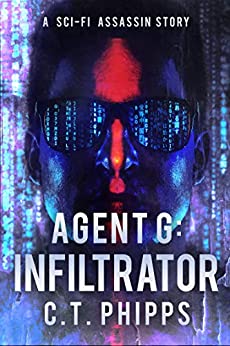The Murderbot Diaries by Martha Wells are based on the concept that part-human, part-machine constructs will probably be just as self-aware as we full humans are. They’ll have their own wants and desires, and they probably won’t enjoy being ordered around by idiots any more than we do. Yet they are essentially a slave class, designated as property and without rights in most jurisdictions. If fitted with a functional governor module, the androids in this series only have limited free will and must follow most commands.
In All Systems Red, we meet an android that secretly refers to itself as Murderbot. Murderbot is a security-purposed construct, aka a SecUnit. All of the SecUnits in this story are property of the Company, a business that sells security and insurance packages, and which will, like most insurance companies, cut almost any corner to keep from spending money. (The more things change, the more they stay the same.)
Continue reading “All Systems Red Review”
